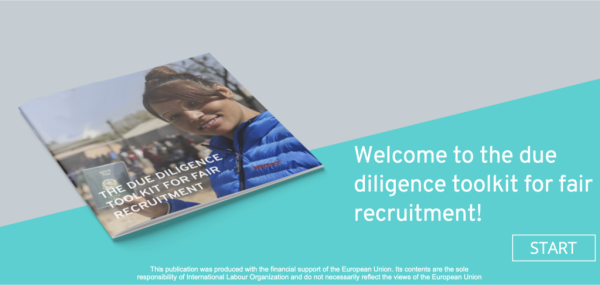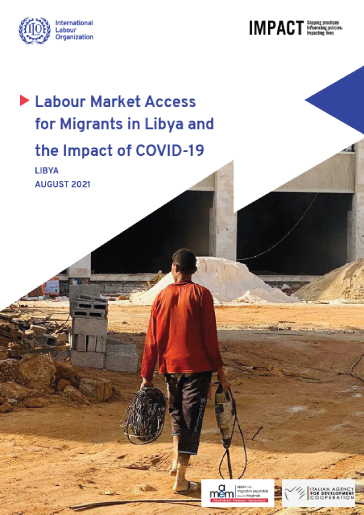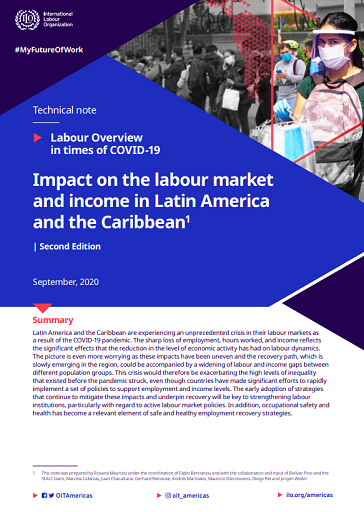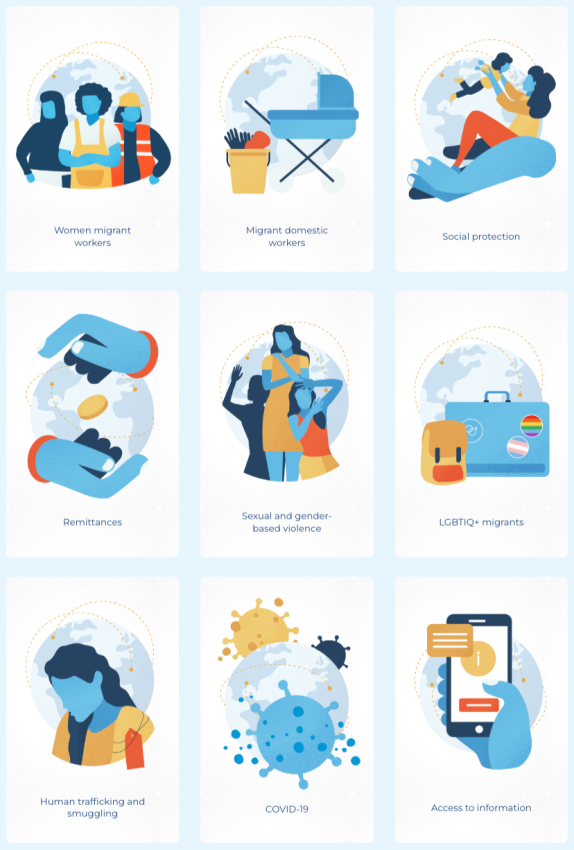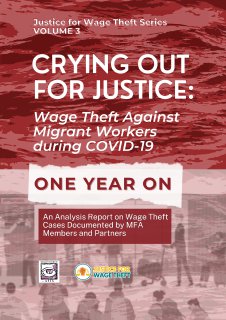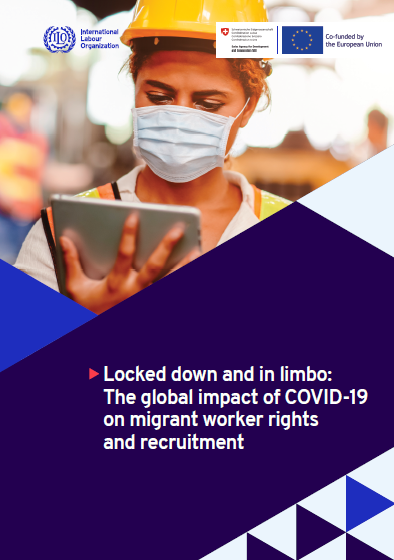Due diligence toolkit for fair recruitment
The fair recruitment toolkit developed by the Global Business Network on Forced Labour helps businesses, especially SMEs (small- and medium-sized enterprises), to set out a due diligence process when hiring workers from abroad. It features step-by-step guidance for companies throughout the recruitment process.
The toolkit has now been translated into French and Spanish.
In English En français En español
The toolkit helps businesses answer the following questions:
- Do you have an approach to, or policy on, fair recruitment?
- Can you identify the main risks?
- Do you have an action plan to manage and reduce risks?
- How do you track progress?
- Can you address problems and complaints?
The toolkit has an additional section on the impact of the COVID-19 pandemic on recruitment, and points businesses towards useful additional resources.
Type of document :
Country/Region :
Year of publication :
Theme : , ,
Labour market access for migrants in Libya and the impact of COVID-19
The AMEM study in Libya, entitled ‘Labour market access for migrants in Libya and the impact of COVID-19’, wishes to provide a better understanding of the labour market in Libya with a focus on the situation of migrant workers. It shows the close link between recruitment channels and working conditions. It specifically underlines the importance of regulating recruitment in line with international labour standards, including migrant workers.
It allowed a better understanding of (1) migrants’ access to employment and the role of labour intermediaries, (2) employment characteristics and conditions of migrant workers, and (3) the impact of COVID-19 on migrant’s ability to access the labour market in Libya and to sustain their livelihoods.
Type of document :
Country/Region :
Year of publication :
Theme : , ,
Labour overview in times of COVID-19: Impact on the labour market and income in Latin America and the Caribbean [Second Edition]
The COVID-19 pandemic has generated unprecedented changes in the world of work. While the crisis has affected all workers, migrants and their families, especially those with irregular migration status and/or engaged in informal work, face additional challenges.
In this context, this Briefing Note has three objectives. First, it briefly analyses the labour landscape of migrant and refugee workers in Latin America and the Caribbean between 2010 and 2019. Second, it presents the results of a rapid assessment conducted by the ILO in Latin America and the Caribbean between August and October 2020. The assessment analyses the effects of the COVID-19 pandemic on the labour and socio-economic landscape, and the responses of refugees, asylum-seekers and migrant workers, government authorities, employers' organizations, trade unions and civil society organizations to the new situation. Finally, in the third part, the document proposes recommendations for good governance of labour migration and the socio-economic integration of migrants and refugees in the context of the COVID-19 pandemic.
Type of document :
Country/Region :
Year of publication :
Theme : ,
How migration is a gender equality issue
Explore this interactive explainer produced by UN Women on women migrants and discover 9 impacts of migration on gender:
- 1. Women migrant workers
- 2. Migrant domestic workers
- 3. Social protection
- 4. Remittances
- 5. Sexual and gender-based violence
- 6. LGBTIQ+ migrants
- 7. Human trafficking and smuggling
- 8. Covid-19
- 9. Access to information
Click here to discover the explainer.
Type of document :
Country/Region :
Year of publication :
Theme : , ,
New EMN study published: Integration of migrant women
Posted at September 7th 2022 12:00 AM | Updated as of September 7th 2022 12:00 AM
Region/Country :
|Themes : , ,
REPORT | Crying Out for Justice: Wage Theft Against Migrant Workers during COVID-19 Volume 3
Migrant Forum in Asia releases the 3rd volume of its analysis report series, “Crying Out for Justice: Wage Theft Against Migrant Workers during COVID-19” This report is an analysis of the cases documented by MFA members and partners as part of the Justice for Wage Theft Campaign.
As states go into crisis recovery, how have migrant workers been cast aside in the global response to the COVID-19 impact? How must stakeholders and duty bearers take action in ensuring that migrant workers achieve justice without delay? Volume 3 analyzes the wage theft cases experienced by migrant workers in the time of the pandemic since we started documenting cases, from July 2020 until December 2021.
08:25 AM
The report is now publicly available. You may download the report via this link: https://justiceforwagetheft.org/entity/9bckmq655ap?file=16454497686693kyxqxz1x2p.pdf
Please feel free to reach out to us for any comments, feedback, or interest to collaborate on the Justice for Wage Theft campaign. You may email mfa@mfasia.org.
Thank you for your continued support in our advocacy.
Type of document :
Country/Region : ,
Year of publication :
Theme : ,
Locked down and in limbo: The global impact of COVID-19 on migrant worker rights and recruitment
The COVID-19 pandemic has had a devastating impact on migrant workers and their access to decent work. Beyond the immediate public health crisis, response measures including lockdowns and border closures had specific implications for the hiring and employment conditions of migrant workers. These measures have increased the vulnerability of migrant workers at the same time as the economic and social dependence on migrant workers who deliver essential services such as healthcare and sanitation has deepened.
To chart and understand this impact in detail, the ILO commissioned a series of rapid assessments in some of the world’s most significant corridors for low-wage migrant workers. Completed in the initial months of the crisis (early to mid-2020), these assessments gathered primary data in the form of interviews and surveys from the perspective of migrant workers and key stakeholders (including governments, civil society, the recruitment sector, employers’ organizations, unions and workers’ organizations) engaged in migration governance, migrant worker deployment and the protection of the rights of migrant workers.
These rapid assessments provide valuable snapshots of the immediate impact of the pandemic and early responses to the pandemic on migrant workers in various parts of the world. Common themes emerging from the research also illustrate the ways in which the pandemic exacerbated existing inequalities and vulnerabilities experienced by migrant workers globally. These themes demonstrate the clear linkages between the impact of the pandemic on migrant workers and the structural causes of the inequalities and vulnerabilities embedded in many current labour migration processes and practices.
Drawing on the rapid assessments, this report provides a global picture of the impact of the crisis on migrant workers, and provides valuable recommendations for ensuring protection of migrant workers’ rights.
Type of document :
Country/Region : , , , ,
Year of publication :
Theme : , , , ,
ILO announces winners of Global Media Competition
Posted at December 18th 2021 12:00 AM | Updated as of December 18th 2021 12:00 AM
Region/Country :
|Themes : , ,
Subscribe to the Fair Recruitment Initiative Newsletter
Sign up to receive news delivered to your inbox.

